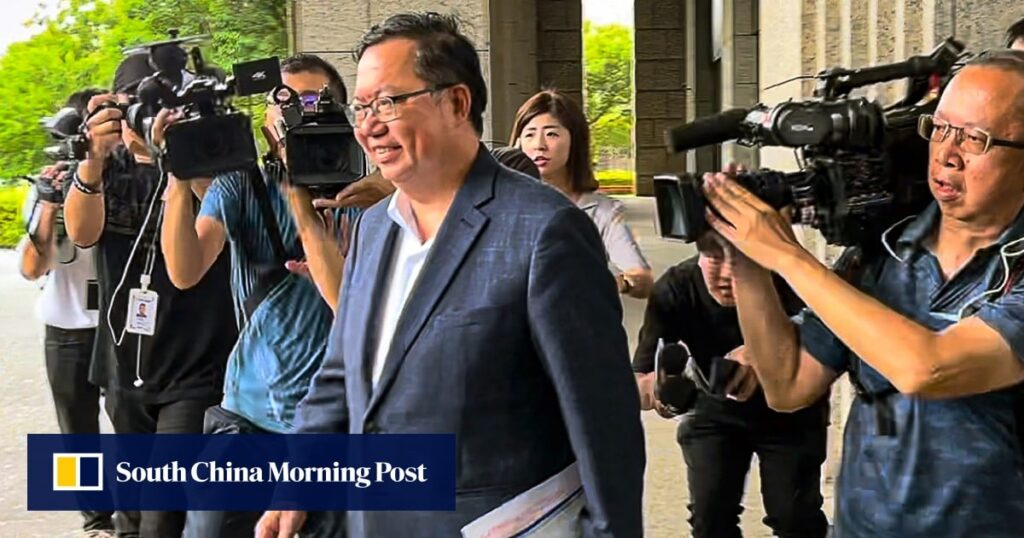Senior Taiwanese Official Resigns Amid Bribery Investigation
Taipei – In a significant development for Taiwan’s political landscape, Cheng Wen-tsan, a senior Taiwanese official and former vice-premier, has resigned as head of the Straits Exchange Foundation (SEF) following a bribery investigation. Known for his moderate stance on cross-strait relations, Cheng’s resignation adds a complex layer to Taiwan’s ongoing struggle to maintain its sovereignty and internal governance integrity.
Resignation and Investigation
Cheng, 57, who assumed the SEF chairmanship under the Mainland Affairs Council as recently as June 7, announced his resignation on Sunday. This decision came shortly after being summoned by prosecutors on Friday for questioning regarding alleged bribery during his tenure as mayor of Taoyuan between 2014 and 2022. Cheng stated that he did not want to disrupt the SEF’s operations amidst the investigation.
“I have not committed any illegal acts, and I will cooperate with the judicial investigation. I hope to clarify the truth and prove my innocence as soon as possible,” Cheng said in a statement released on Saturday.
The Taoyuan district prosecutors’ office, after 16 hours of questioning, sought court approval to detain Cheng over suspected acceptance of a bribe linked to a land rezoning project near a science-based industrial estate in Taoyuan. While the Taoyuan District Court initially rejected the detention request, Cheng was released on NT$5 million (US$154,000) bail. However, this decision was overridden by the High Court, which has requested a review of his detention case.
Implications for the Ruling Party
Cheng is the first senior official from President William Lai Ching-te’s government to step down, resigning just a month after taking office. His departure underscores a critical challenge for the Democratic Progressive Party (DPP), which has pledged to combat corruption rigorously. President Lai, stressing the importance of integrity regardless of party affiliation, stated, “The fight against fraud, organised crime, and corruption remains a critical task for the current government.”
Taiwan’s presidential office, cabinet, and the ruling DPP expressed their respect for the judiciary and emphasized the importance of a swift resolution to the matter.
Context and Background
Cheng, a close confidant of former leader Tsai Ing-wen, assumed the vice-premiership in January 2023 under Tsai. However, after President Lai assumed office, Cheng was not included in the new cabinet and was instead appointed by Lai to head the SEF.
The SEF, established in the 1990s, serves as the intermediary in cross-strait affairs between Taiwan and mainland China. Its role has dramatically diminished over the past eight years under Lai’s predecessor, Tsai Ing-wen, focusing mainly on non-political matters, such as aiding Taiwanese citizens on the mainland.
Beijing, which views Taiwan as a part of its territory, has suspended official exchanges with the island since Tsai refused to accept the one-China principle after assuming office in May 2016. Tensions have escalated further with President Lai taking office on May 20, declaring Taiwan and mainland China “are not subordinate to each other.” This stance led Beijing to conduct war games simulating a blockade around Taiwan, signaling a severe deterioration in cross-strait relations.
Conclusion
Cheng’s resignation marks a turning point in Taiwan’s efforts to navigate both internal and external pressures amid cross-strait tensions. As the investigation unfolds, it remains to be seen how this will impact the DPP’s credibility and the broader political dynamics in Taiwan. The case reaffirms Taiwan’s commitment to judicial transparency, even as it grapples with the larger question of its sovereignty and international standing.
